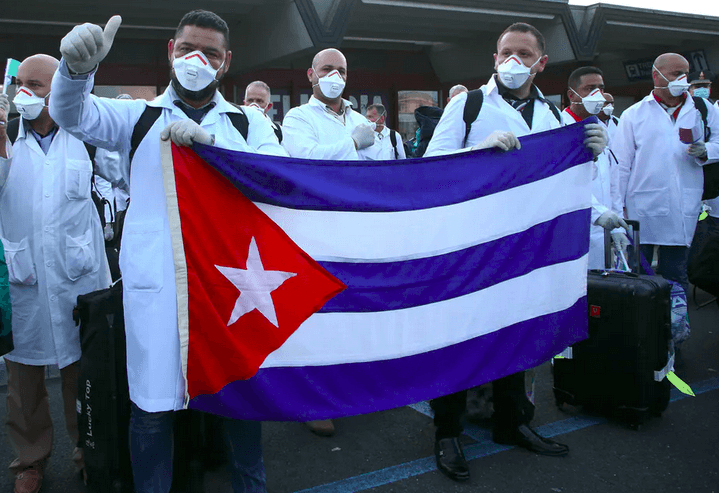
The empty stare we have been projecting onto the outside world ever since SARS-Cov 2 invited itself into our life is pretty disconcerting. Although spring is here, and it is perfect, with no sign of a cataclysm like the ones we experienced in the past (drought, flood, famine, war), we do not seem to take notice of it, let alone enjoy it like we used to. In fact, spring 2020 is but a semblance of spring. Gone are the days when we would get together, be together, laugh together, and even cry together. Suddenly, the world we thought we knew has been turned upside down, not only mined from within, but also sapped by anxiety and grief brought about by an invisible animalcule.
How can a minute living creature put a stop to our long-overdue modernity? The question has no easy answer.
In the course of our monk-like seclusion, we are experiencing the unavailability of the world. Until recently, we thought that we had the entire planet at our disposal, with almost everything at our disposal, thanks to smartphones, cars, and low-cost flights. Today, however, we think of every unavailability—all that used to be at our discretion on a whim—as a great annoyance. Moreover, the anxiety of not being able to see a close relative, bid farewell to a friend, pay respects to a parting beloved runs deep, very deep. We are faced with what Giorgio Agamben aptly called “our naked life”: we are forced to sacrifice everything, including our respect for the dead. He maintains that in order to survive we must put our biological life before our sensitive, intellectual, and even political life. However, what Agamben fails to note is the added distress of mind we must deal with in facing the dreaded uncertainty about how the virus will evolve, especially when the knowledge we have arises from imperfect information, which points to probable ill-fortune.
It is in this sense that our malaise is no longer caused by a miniscule problem—a computer that suddenly goes down or a hairdryer that fails—but by a pandemic of unprecedented scale, provoked by an inconspicuous, active organic element for which there is neither vaccine nor remedy, at least for now. As a result, the once-upon-a-time available world has become alienated. Mass tourism, the cheap way to holiday, which has destroyed our lieux and milieux, is a good example of what I have in mind. If this sounds extreme, think of the droves of people one finds in Venice or Paris in the summer and the point will be clear enough. Our dependence on high tech, which made planet Earth more and more accessible, has led us astray.
All of the above ought to give us pause. For we must rethink altogether our relationship to nature, which our tardy modernity pretended to make totally familiar to us, or at least so we thought. Nature, on the other hand, has sent us a clear message. The return to our backyards of wild animals is a wake-up call for the new beginning we must make. From now on, no more promiscuous treatment of Mother Earth. Maybe the time has come when we can dream of a planet that is both clean and safe, including for humming birds, peregrine falcons, birds of paradise as well as for the rest of the animal kingdom.
In the meantime, while we hunker down for fear we might contract the virus, we may want to consider this maxim: our greatest hour will come when we turn around the next corner and face up to our sordid practices. (The ugly pace of deforestation in Amazonia is a good example of what I have in mind). Only then will we be able to manage this crucial moment in history, for to steer the ship away from our usual purgatory will be vital to our survival as a species. But I fear that when tomorrow is here, we will once again find ourselves at cross-purposes between the best of times we had and the worst of times to come; between the dream and the nightmare. The lyrics of “Earth Odyssey” by Asaf Avidan says it all, projecting an apocalyptic and profoundly somber feeling:
The world twirls from underneath
And everybody sings on its grave
And the world twirls again and again and again
We’re all heading toward the point of no-return
Go on singing as if there were no tomorrow.
Whatever we do in the coming years will rest to a large degree on our way to go forward and indeed set our energy free. I would like to think that a better world can emerge from this pandemic. For now, though, one thing is certain. SARS-Cov 2 has forced us to look inward. As a result, we are reflecting on who we are. We are no longer interested in people for what they do—their wealth, power, profession, status—but for who they really are. The lockdown has taught us to be truly grateful to all the front-line workers (nurses, drivers, doctors, paramedics, cleaners, pickers). They are our “happy few” in that their availability in these trying times has saved the day. Like in music, there are geniuses (Beethoven comes to mind) who are born ahead of their time. The essential workers, who have been at the forefront of the virus, are also the super- working-class heroes; the geniuses of our time.
Mustapha Marrouchi is a writer on a wide range of topics including literature, politics, cultural criticism, and Islamic issues. He is the author of half a dozen books, including Edward Said at the Limits.
SIGN UP FOR COUNTERCURRENTS DAILY NEWS LETTER









































